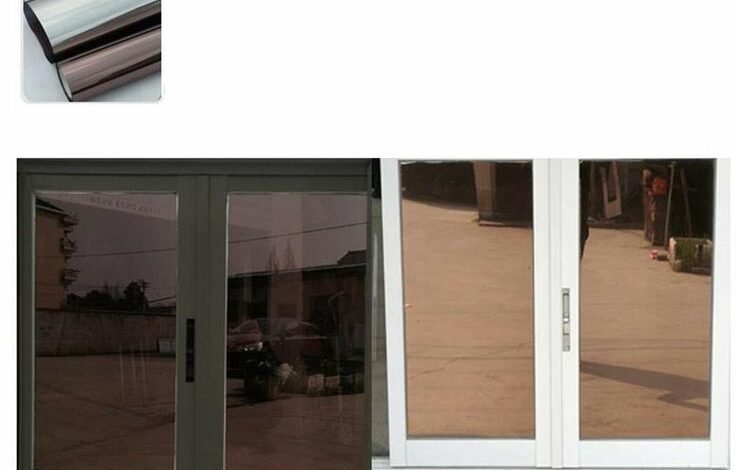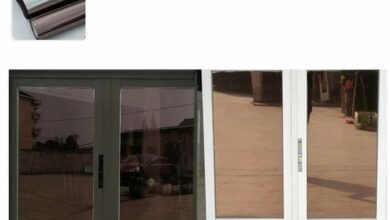Choose the Right Window Tint for Your Home: A Comprehensive Guide
Choose the Right Window Tint for Your Home: A Comprehensive Guide

Window tinting can completely transform your home—boosting comfort, privacy, aesthetics, and even energy efficiency. But with so many options available, how do you pick the perfect tint for your windows? This guide will walk you through everything you need to know about residential window tinting, from exploring different types and their benefits to helping you make the best decision for your space.
Why Tint Your Home’s Windows?
Window tinting isn’t just for cars! Residential window tints are becoming increasingly popular as homeowners look for ways to enhance their living spaces. Whether you’re trying to reduce that harsh afternoon glare, protect valuable furniture from fading, or add a touch of modern style, window tints can be a game-changer.
But here’s where it gets tricky—different types of window tints serve different purposes. That’s why choosing the right one requires understanding your needs and the options available.
Types of Window Tinting for Homes
Window tinting comes in a variety of styles, each catering to specific homeowner goals. Here are three key categories of residential window tinting to consider:
1. Solar Control Films
Solar control films are ideal if you’re battling heat or UV rays. These films are designed to block harmful UV rays and reduce heat build-up inside your home. They can also help reduce glare, making spaces more comfortable.
- Best for: Hot climates, west-facing windows, or rooms with excessive sun exposure
- Bonus: They improve energy efficiency by reducing the need for air conditioning.
2. Privacy Films
If privacy is your top concern, privacy films are the way to go. These films block outsiders from peeking into your home while still allowing natural light to filter through. They’re particularly useful for spaces like bathrooms or street-facing windows.
- Best for: Protecting privacy in densely populated neighborhoods
- Bonus: Some privacy films also double as security films, adding an extra layer of protection to your windows.
3. Decorative Films
Looking to add a bit of personality to your windows? Enter decorative films. These come in various designs, textures, and patterns to enhance your space’s aesthetics without the permanence of etched or frosted glass.
- Best for: Adding style and character to windows or glass partitions
- Bonus: They’re easy to update if you’re craving a new look down the line.
How to Choose the Right Window Tint?
Before you rush to buy window film, take a moment to consider the following factors to ensure you find the perfect fit for your home.
Climate and Sun Exposure
- Do you live in a hot, sunny area? Solar control films are probably your best bet.
- Struggling with excessive glare or fading furniture? Look for films with UV protection.
- For colder climates, consider films that provide some insulation to retain heat indoors.
Privacy Needs
- Want privacy without sacrificing natural light? Opt for privacy films with one-way visibility.
- For spaces like bedrooms or bathrooms, darker or frosted films may be ideal.
Aesthetic Preferences
- Do you want a subtle look or something bold? Decorative films give you that creative freedom.
- Solar control and privacy films are usually subtle and functional, blending seamlessly into most home designs.
Benefits of Window Tinting for Your Home
Now that you know how to choose the right tint, it’s time to explore why window tinting is such a smart investment.
1. Improved Energy Efficiency
Tinted windows help regulate indoor temperatures, reducing the need for excessive cooling during summer or heating in winter. This can lead to significant savings on your energy bill.
2. UV Protection
Over time, UV rays can damage furniture, flooring, and artwork. Window tinting blocks up to 99% of these harmful rays, helping preserve your home’s interior.
3. Enhanced Privacy and Security
Whether it’s ensuring your family’s privacy by blocking prying eyes or adding a protective layer to make windows harder to break, tints keep your home safe and serene.
4. Stylish Appearance
Decorative tints can instantly upgrade your home’s look, adding a touch of sophistication, modernity, or whimsy—depending on your style.
Installing and Maintaining Window Tints
Proper installation is crucial to get the most out of your window tints. Many homeowners choose to work with professional installers to ensure smooth, bubble-free application, but there are DIY kits available for those ready to take on the challenge.
Once installed, be sure to follow these maintenance tips to keep your tints in great condition:
- Use a soft cloth or sponge and non-abrasive cleaner to clean tinted windows.
- Avoid sharp tools or scrapers that could damage the film.
- Check with the manufacturer’s recommendations for care and product lifespan.
Success Stories from Homeowners
Still on the fence? Here are a few real-life examples of how window tinting has transformed homes like yours:
- Emily in Texas: “Our living room used to feel like a greenhouse by mid-afternoon. Solar control film completely fixed that—our space stays cool and comfortable all day!”
- Michael in New York: “Privacy tints on our street-facing windows have been a game-changer. We feel so much more secure while still enjoying lots of natural light.”
- Sara in California: “The decorative film we added to the kitchen windows gives it such a chic, modern look. Everyone who visits asks where we got it!”
FAQs about Window Tinting for Homes
Here are some common questions homeowners have about window tinting, answered.
Does window tinting affect natural light?
Not necessarily! While some tints are designed to darken rooms, others are virtually invisible and still provide UV and heat protection.
Can window tinting be removed?
Yes—most films are removable without damaging the glass, making them a flexible choice for homeowners.
How long do tints last?
With proper maintenance, high-quality films can last up to 10 years or more.
Is window tinting eco-friendly?
Yes! Tinted windows improve energy efficiency, which is great for the environment and your wallet.
Can window tints be installed on all types of glass?
Window tints work on most glass surfaces, but be sure to check compatibility with tempered or low-emissivity (Low-E) glass.
Transform Your Space with the Right Window Tint
Choosing the ideal window tint can enhance your home in countless ways—from improved comfort and energy savings to added privacy and style. By considering your needs and exploring your options, you can transform your living space into a haven of functionality and beauty.
Looking for even more help? Contact us today to learn more about our window tinting solutions or schedule a consultation to get started!



